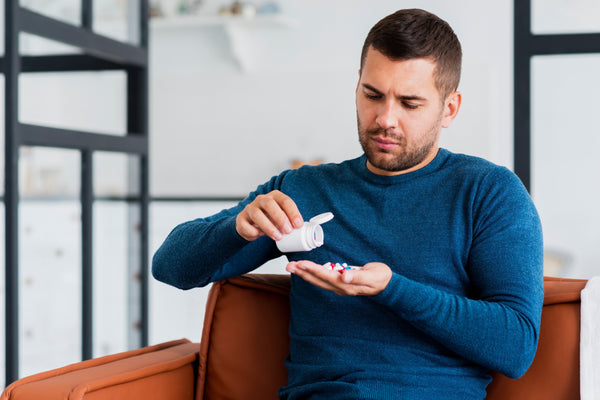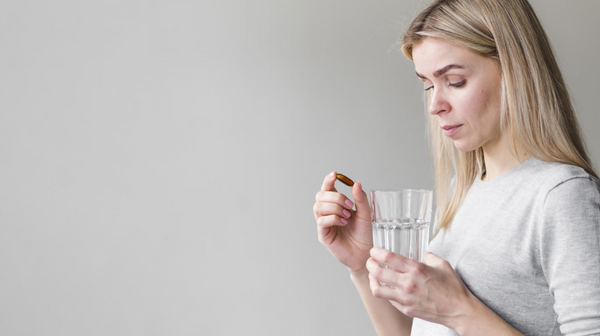We are all aware of the ways our diet and sleep patterns are interlinked. But what most of us don’t know is how specific nutrients impact our sleep in different ways. In this article, we take a look at which vitamin is good for sleep, and the role it plays for our sleep.
Vitamins for Sleep
While certain vitamins have an effect on insomnia and sleep apnea, others help in regulating the circadian rhythm or our sleep-wake cycles. There are two ways to get these vitamins into your body, one is through the food that you consume and the second is through supplements. With shifts in lifestyles and irregular eating habits, consumption of supplements has become a very viable option for many people.
You can also ask your doctor for a diet rich in vitamins and/or getting a daily dose of supplements for a regular vitamin intake.
But how to sleep better? It is very important to have the right dosage of supplements to maintain good health and a healthy sleeping pattern. Let’s take a look at the vitamins affecting our sleep below.
Vitamin D
Many people know vitamin D for its beneficial effects on bones, however, what they may not have known is that the same vitamin also plays a crucial role in regulating their mood and immune system. A vitamin D deficiency can have a negative impact on our sleep quality and quantity.
As per research, vitamin D supplementation can improve our sleep quality by decreasing sleep latency or the amount of time it takes for you to fall asleep. It was shown to improve the sleep duration in people between the age of 20-50 years, dealing with any kind of sleep disorders.
The biggest source of vitamin D is the sun, but you can also get it from foods like fish, eggs, dairy, and red meat.
Vitamin B6
Vitamin B6 is important for various functions in our body including immune health, cognitive function and more. B6 is also known to have a significant impact on our sleep and dreams.
As per research, B6 before bed can help in enhancing dream recall and vividness, enabling, for some, lucid dreaming. Vitamin B6 also aids the production of serotonin and melatonin in the body, one necessary for stress and the other for sleep, thereby improving sleep quality and duration. By lifting the moods, B6 also helps alleviate the symptom of depression that affects sleep.
You can find B6 in bananas, carrots, potatoes, milk, eggs, spinach, and whole grains among others. On the other hand, there are various supplements available for vitamin B6 for sleep. You can find this nutrient in Wellbeing Nutrition's Melts- Restful Sleep, along with melatonin, l-theanine, 5-Hydroxytryptophan (5-HTP), valerian root, passion flower, and Gamma Aminobutyric Acid (GABA). This product will help you regulate your sleep-wake cycle and help you get deep, uninterrupted sleep.

Vitamin C
Vitamin C is an antioxidant powerhouse that helps us keep physically fit and strong. It also helps in the production of collagen, thereby enabling bone, teeth, and skin health.
According to research, vitamin C showed to have improved tolerance for stress, thereby lowering the occurrence of sleep apnea and other sleep disturbances. A combination of C and E also helps in improving sleep quality and reducing sleepiness during the day.
You can find vitamin C in various foods such as strawberries, broccoli, kale, spinach, kiwi, and various other foods. There are also a number of vitamin C supplements available in the market.
If you’re looking for a cure for insomnia, other vitamins that improve sleep include vitamin B12 and E. They help in preventing cell damage, improving REM sleep, and maintaining a healthy brain process among other things.

- Sleep and Nutrition Interactions: Implications for Athletes, Rónán Doherty, Sharon Madigan, Giles Warrington, and Jason Ellis, Nutrients Journal, doi: 10.3390/nu11040822, (https://www.ncbi.nlm.nih.gov/pmc/articles/PMC6520871/)
- The effect of vitamin D supplement on the score and quality of sleep in 20-50 year-old people with sleep disorders compared with control group, Mohammad Shahi Majid, Hosseini Seyed Ahmad, Helli Bizhan, Haghighi Zade Mohammad Hosein, Abolfathi Mohammad, Randomized Controlled Trial, 2018, doi: 10.1080/1028415X.2017.1317395, (https://pubmed.ncbi.nlm.nih.gov/28475473/)
- Effects of Vitamin B6 (Pyridoxine) and a B Complex Preparation on Dreaming and Sleep, Denholm J Aspy, Natasha A Madden, Paul Delfabbro, Randomized Controlled Trial, Denholm J Aspy, Natasha A Madden, Paul Delfabbro, 2018, doi: 10.1177/0031512518770326, (https://pubmed.ncbi.nlm.nih.gov/29665762/)
- Vitamin B6 level is associated with symptoms of depression, Anne-Mette Hvas 1, Svend Juul, Per Bech, Ebba Nexø, Psychotherapy and Psychosomatics, DOI: 10.1159/000080386, (https://pubmed.ncbi.nlm.nih.gov/15479988/)
- Exploring the effect of vitamin C on sleep deprivation induced memory impairment, Nizar M Mhaidat, Karem H Alzoubi, Omar F Khabour, Noor H Tashtoush, Saleem A Banihani, Khalid K Abdul-razzak, Brain Research Bulletin, doi: 10.1016/j.brainresbull.2015.02.002, (https://pubmed.ncbi.nlm.nih.gov/25724146/)
- Vitamin C Prevents Sleep Deprivation-induced Elevation in Cortisol and Lipid Peroxidation in the Rat Plasma, L A Olayaki, S O Sulaiman, N B Anoba, Nigerian Journal of Psychological Sciences, 2015, (https://pubmed.ncbi.nlm.nih.gov/27507778/)

























